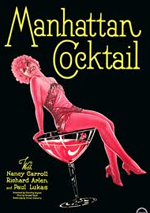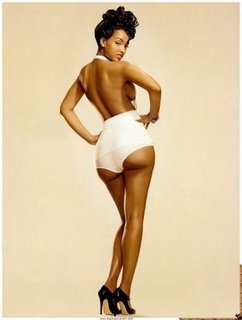There’s been good discussion over at A Brown Girl on the question of femme invisibility and femme privilege, prompted by ABG’s reposting of Nikki’s thoughtful piece on that issue. I’m a big fan of Nikki and her blog, give me space (to rock), but I think the concept of “femme privilege” doesn’t actually capture the experience of living as a femme-identified queer. Here’s why.
Nikki’s point is that femmes have privilege over people who read as “androgynous,” “butch,” or “masculine.” While I agree with her about the discrimination faced by gender nonconformists, it seems like a dangerous overgeneralization to assign privilege to femmes. Femmes may deal with different forms of gender oppression and homophobia than other members of the LGBTQ community, but this doesn’t make us a privileged social group. Furthermore, to describe femmes as privileged doesn’t account for mutiple or overlapping oppressions such as race, class, nation, ability, age, etc. For example, is a Chicana femme living in poverty more privileged than Ellen Degenerous or Samantha Ronson?
Still, maybe you’re thinking that I’ve been sidestepping Nikki’s central argument–namely, the idea that femme invisibility is a form of privilege. While some femmes may experience forms of unearned privilege–i.e. white privilege–”femme privilege” implies that women in general have a privileged status and that femmes in particular aren’t oppressed sexual minorities (because of the cloak of invisibility). I just can’t get on board with these positions.
For me, “femme privilege” divides queer women in terms of gender at a time when we would be better served by thinking about what connects us. By pitting “gender variant” butches/genderqueers against “gender conforming” femmes, femme privilege implies that (1) these are opposing groups that can be neatly divided (2) all femmes can or do pass (3) passing = privilege. The last 2 points remind me of those who say that bisexuals aren’t “real” queers because they can always pass for straight by cashing in on their heterosexual privilege. (A biphobic stereotype, needless to say.) It also reminds me of the argument that gays and/or queers aren’t an oppressed minority because, unlike blacks and other racial minorities, they can “hide” their sexual orientation. Grrr, I hate this one! I think anybody who says this has no idea about the struggles and problems produced by living in the closet, which is itself a form of oppression.
I think Nikki is right that we all need to consider questions of oppression and privilege in our lives, but the privilege model doesn’t allow us to do this in a complex, multidimensional way. My beef is really with the whole notion of dividing the world into privileged vs. nonprivileged people. In my view, most of us are both privileged and nonprivileged in multiple aspects of our lives.
[For original post and comments–which are excellent–click here.]
Filed under: Lesbian & Queer Genders, Queer Femininity | Tagged: femme invisibility, femme privilege, gender oppression, oppression vs. privilege | 4 Comments »






